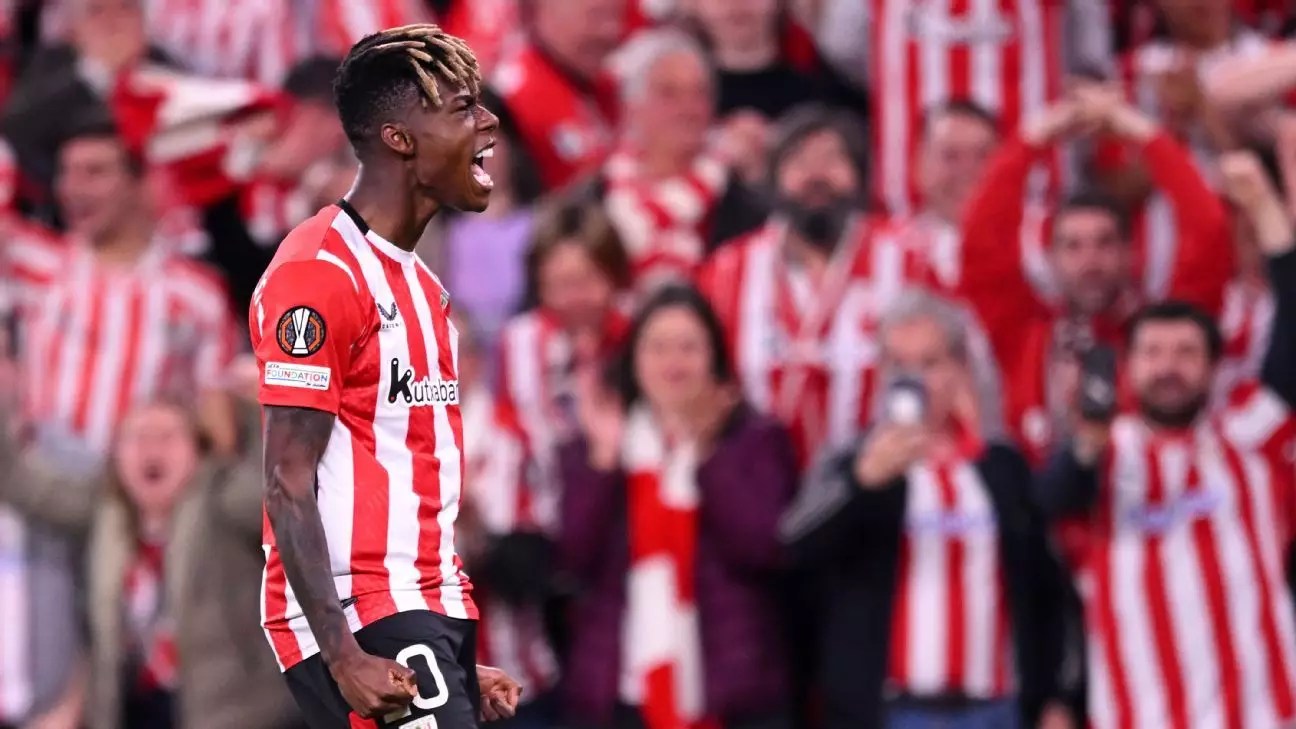Athletic Club de Bilbao is not just a football club; it embodies the rich tapestry of Basque culture and identity. History reminds us of the significance of local pride in this institution, which restricts itself to players developed in the Basque region. This policy has created an unbreakable bond between the club and its supporters, marking every victory not merely as a game won but as a celebration of shared heritage. A vivid example of this would be their jubilant parade aboard the Gabarra after lifting the Copa del Rey, a festivity that reminded everyone of the glory of yesteryears intertwined with the vibrant spirit of the present.
In April of the previous year, Athletic etched their name in the annals of history by winning the Copa del Rey for the first time in four decades. This monumental victory triggered a whirlwind of celebrations, transforming the streets of Bilbao into a raucous display of joy and camaraderie. However, the celebrations, while hearty, also carry the bitter taste of what could have been as they grappled with pressures in the league soon after.
The Gabarra Experience: A Unique Tradition
The Gabarra, a symbolic boat once retired to become a carrier for cargo, again took center stage as athletes and supporters embraced the cherished tradition. The scene was electric, with a flotilla of 162 vessels and supporters numbering a million, all draped in red and white. The Gabarra’s return to the river signified more than just a celebration; it reinstated a tradition infused with cultural importance. The players, like sailors on leave, danced and reveled, seemingly oblivious to the league match that awaited them the next day against Villarreal.
“It’s a hard week,” admitted the charismatic forward Iñaki Williams post-revelry. His words encapsulated the duality of their celebration: immense joy shadowed by the stark reality of subsequent performances. In an unfortunate twist, Athletic squandered a lead against Villarreal, only for the match to end in a heart-wrenching 1-1 draw due to a conceded penalty. That moment, poignant and bitter, was a reminder of the fine line between glory and disappointment.
Highs and Lows: The Tug of War with Fate
Throughout the following weeks, remnants of that jubilant celebration lingered, manifested in an underwhelming performance against relegation-threatened Granada. Dropped points accumulated, and with every misstep, visions of Champions League football slowly faded away. The hangover from the Copa del Rey festivities loomed large, leading to a heartbreaking loss to Atlético Madrid that relinquished their Champions League dreams. This juxtaposition of triumph and despair speaks volumes about the emotional investment of the players and fans, embroiled as they are in the raw realities of sport.
Athletic Club’s journey transcends the realm of football, blending the cultural essence of the Basque experience with the grit and rawness of competition. As they prepare to face Manchester United in the Europa League semifinals, it’s a chance for redemption, for both players and fans alike.
Anticipation and Rivalry: The Clash with Giants
While the trophy cabinets may decorate Manchester United’s storied history, Athletic Club prides itself on its unique philosophy. A significant aspect of this rivalry is how both clubs regard their stadiums — “The Cathedral” for Athletic and “The Theatre of Dreams” for United. These names reflect the hopes, aspirations, and immersive experiences they offer. Athletic’s San Mamés, oozing with history, represents the soul of its supporters. In times of struggle, the connection between the fans and the team runs deeper than simple allegiance; it’s an emotional rollercoaster that speaks to the profound sense of belonging.
Standing at the helm, coach Ernesto Valverde oversees this team, not just as a tactician but as a figure of inspiration. His approach is reminiscent of an ant — industrious and diligent, a reflection of his Basque heritage. The recent times may have seen him dodging opportunities in England, but now, he stands to lead his team unto the sacred battleground of English football. His personal tragedies, having faced defeat in finals before, serve only to deepen his resolve and build character within the team.
More than a Club: The Philosophy of Athletic
Former striker Aritz Aduriz beautifully captured the essence of Athletic Club when he stated, “It is like a philosophy, a small religion.” This sentiment transcends mere fan engagement; it’s a spiritual connection that unites generations. Supporting Athletic is akin to participating in a familial event, creating bonds that pay homage to shared cultural roots. This outreach embodies not just a passionate support of players on the pitch but also a collective expression of identity and pride.
As Athletic prepares for the monumental clash against Manchester United, a journey armed with purpose and the desire to prove their mettle awaits. The stakes are high, but beyond victory or loss lies the beautiful connection that makes Athletic Club more than just a football team; it is a vibrant testament to resilience and unity in the face of adversity, embodying the heart and soul of Basque culture in every kick of the ball.


Leave a Reply